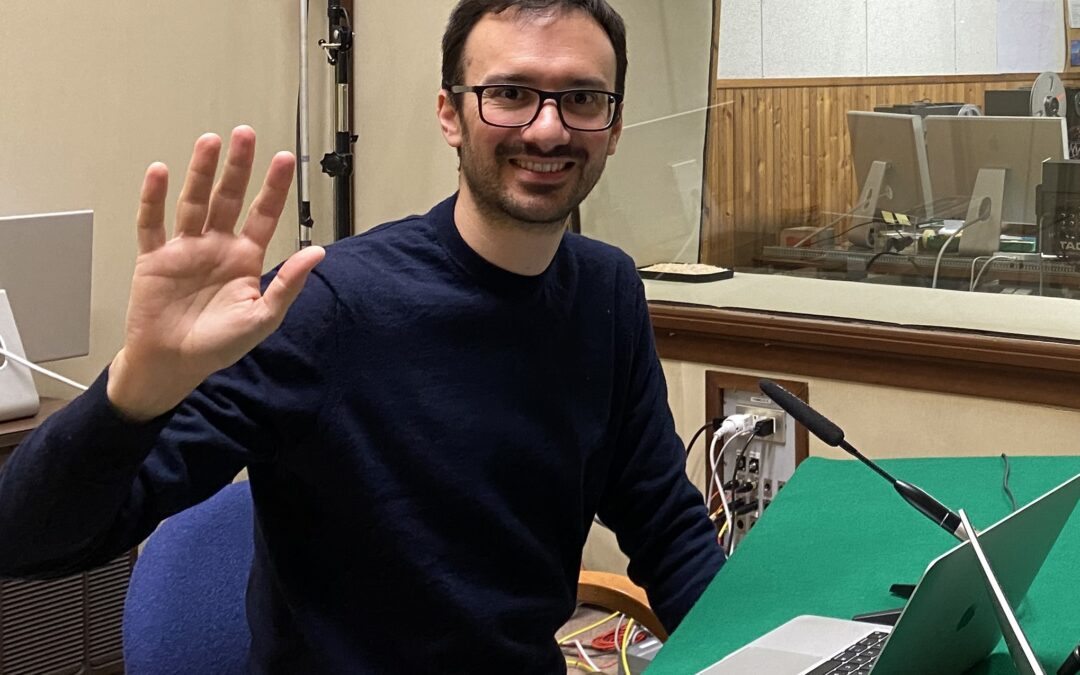
May 23, 2023 | Non categorizzato
Tommaso Bertolasi and Laura Salerno are the creators of “Benedetti dubbi” (Blessed doubts) a new podcast from the young people of the Focolare Movement. The first episode will be available on 23rd May, 2023. We asked Tommaso and Laura to explain how doubts can really be a “blessing”, in order to get to know ourselves and others better. What is our calling? What is the best road to follow when we come to one of the many crossroads that life throws at us? Do we know ourselves and, above all, who has the antidote for fear? Questions like these, the kind that overwhelm our daily lives, are the subject matter of “Benedetti dubbi”, the new podcast designed for young people and by young people, released (in Italian) on 23rd May. To find out more about it, we interviewed the authors of this project, long-time friends, Tommaso Bertolasi, a researcher in philosophy at the Sophia University Institute (Loppiano, Florence) and Laura Salerno, a young member of the Focolare Movement, a writer and a student of literature. Laura, how did it all start?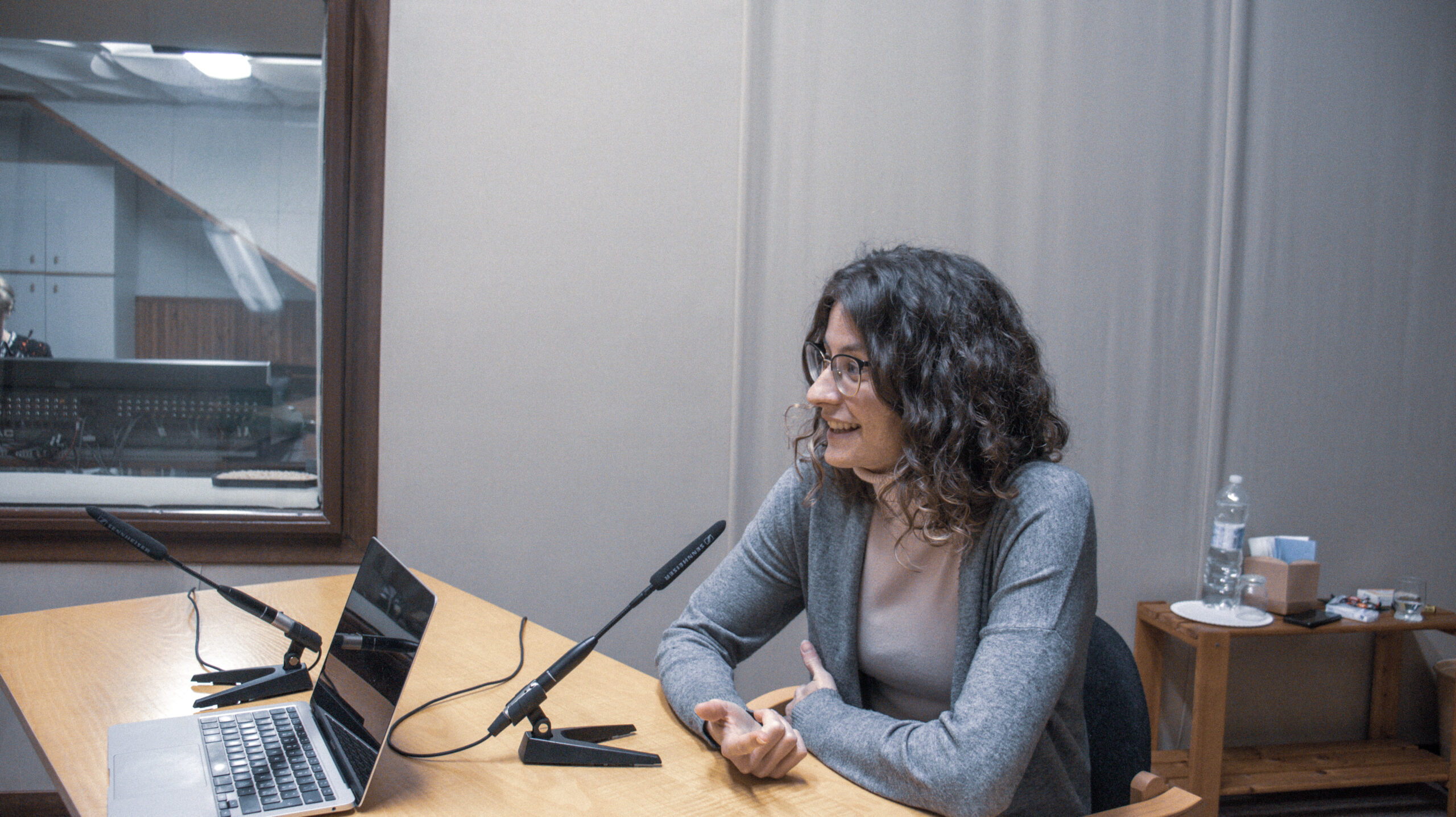 It all started in 2018. Tommaso and I were in Argentina. We met at a conference for young people of the Focolare Movement. Since he is a philosopher, he had been invited as a speaker to talk about freedom. I listened to what he said and liked it very much. Over the years he has continued to engage in dialogue with and for young people, so much so that he has decided to compile some of the exchanges in a book, entitled “The last hour of the night”, which will be released by Città Nuova in August 2023. And then came the idea: “Well if a book is coming out, why not do a podcast that deals with the same content?” And so a few months ago I got a phone call inviting me to help him bring this project to life. Tommaso, why a podcast? Sometimes ideas are like a cocktail: they come out of the union of various things. And this is what happened with “Blessed Doubts”. At a certain point I realized that I had a lot of material for meetings, workshops and dialogues, that I had often prepared with young people. Hence the idea of not restricting important themes such as freedom, choices, fragility and vocation to just one occasion but of being able to offer them to everyone. Then I thought that other languages and themes could also be explored and so here is the podcast. I wanted to create a format more suitable for young people, who often nowadays, find reading a challenge. Or at least, they read something after you’ve convinced them it’s worth it. In all this work, an additional factor was the World Youth Day that dictated the timing of this operation a little. I thought it would be nice that the Focolare Movement could offer something to those who are preparing to go to Lisbon. It will be released on the major podcast platforms (Spotify, Apple Podcast, Google Podcast), one episode per week for 6 weeks. Laura, what age group are you targeting? Our target age range is 18-30 years. This is why the main themes are questions about fragility, freedom, relationships, trying to find one’s place in the world. It’s all about trying to see doubt as a positive thing, as a springboard to live more deeply and more consciously what happens to us.
It all started in 2018. Tommaso and I were in Argentina. We met at a conference for young people of the Focolare Movement. Since he is a philosopher, he had been invited as a speaker to talk about freedom. I listened to what he said and liked it very much. Over the years he has continued to engage in dialogue with and for young people, so much so that he has decided to compile some of the exchanges in a book, entitled “The last hour of the night”, which will be released by Città Nuova in August 2023. And then came the idea: “Well if a book is coming out, why not do a podcast that deals with the same content?” And so a few months ago I got a phone call inviting me to help him bring this project to life. Tommaso, why a podcast? Sometimes ideas are like a cocktail: they come out of the union of various things. And this is what happened with “Blessed Doubts”. At a certain point I realized that I had a lot of material for meetings, workshops and dialogues, that I had often prepared with young people. Hence the idea of not restricting important themes such as freedom, choices, fragility and vocation to just one occasion but of being able to offer them to everyone. Then I thought that other languages and themes could also be explored and so here is the podcast. I wanted to create a format more suitable for young people, who often nowadays, find reading a challenge. Or at least, they read something after you’ve convinced them it’s worth it. In all this work, an additional factor was the World Youth Day that dictated the timing of this operation a little. I thought it would be nice that the Focolare Movement could offer something to those who are preparing to go to Lisbon. It will be released on the major podcast platforms (Spotify, Apple Podcast, Google Podcast), one episode per week for 6 weeks. Laura, what age group are you targeting? Our target age range is 18-30 years. This is why the main themes are questions about fragility, freedom, relationships, trying to find one’s place in the world. It’s all about trying to see doubt as a positive thing, as a springboard to live more deeply and more consciously what happens to us. 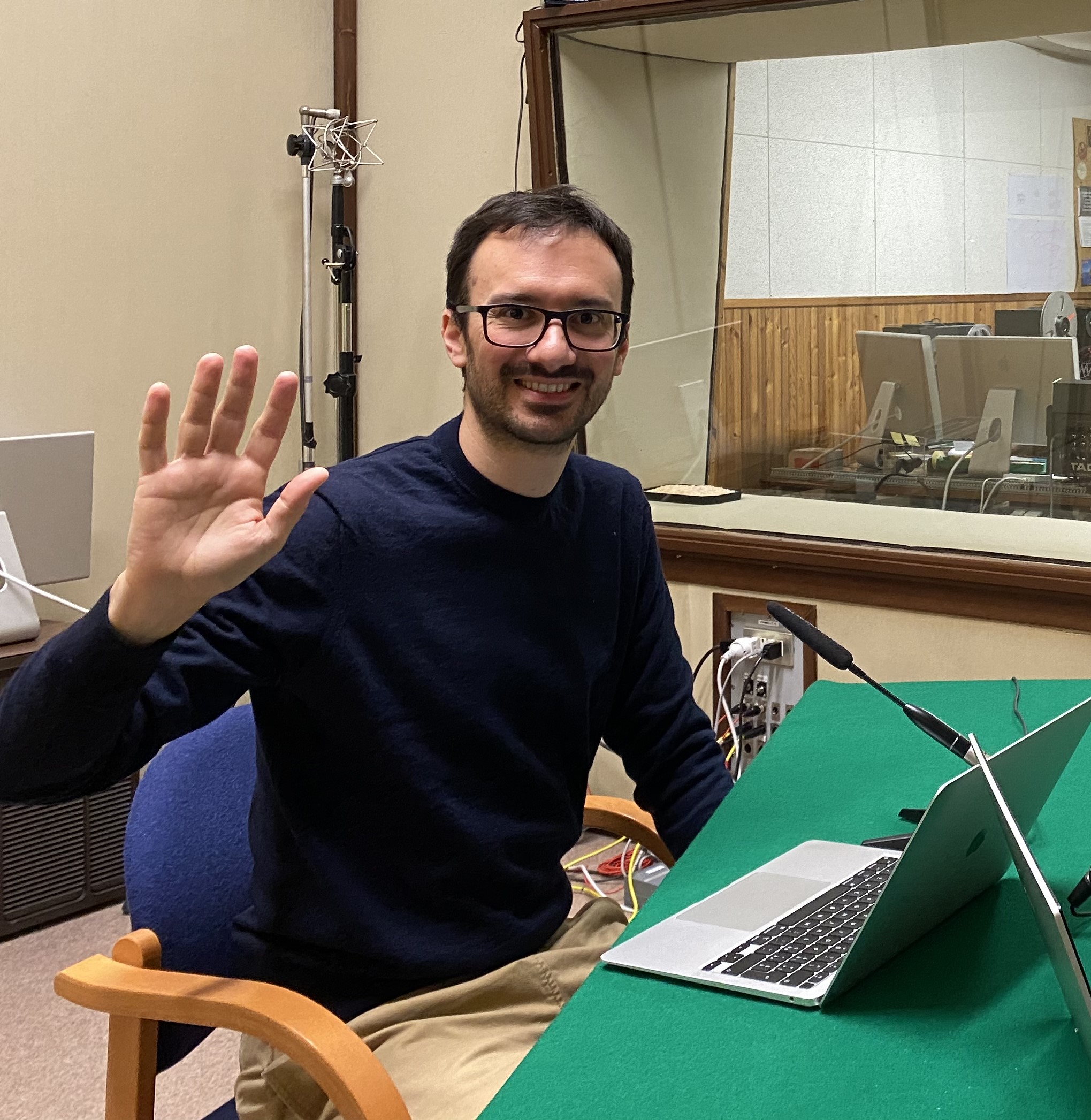 Tommaso, how did you determine the topics to be addressed for each episode? My initial idea was to replicate the contents of the book, paraphrasing it. Working with Laura, however, I realized that her questions led the conversation to other areas, that the young people she had in mind were also her university classmates who do not necessarily recognize themselves in any religious creed. I understood that Laura had deep questions that were partly hers and partly reflected her world of relationships: it was from those questions that we had to start to weave something suitable for young adults. What was the most difficult episode for you, Laura? I think the hardest was the first one. We were both a bit nervous, and then we had to introduce the podcast, make it clear why we think it is important to ask questions, not to exist in anxiety or submerged in paranoia. A further challenge was that a few days before we recorded the first few episodes, I had a bad cold and a high temperature. Everything always happens at the same time! But we managed to do it also thanks to the super team that supported us during the recording. Tommaso, what did you gain from this project? I learned a lot from all the people with different skills who worked on this project. Indeed, the realization of “Blessed doubts” was a collective operation. And after you listen to the podcast, we’d love to have your feedback, on Spotify, on our social networks (@Y4UW and Movimento_dei_focolari) or via email (ufficio.comunicazione@focolare.org). For further information about other projects in the pipeline, stay connected to the social channels of the Focolare Movement.
Tommaso, how did you determine the topics to be addressed for each episode? My initial idea was to replicate the contents of the book, paraphrasing it. Working with Laura, however, I realized that her questions led the conversation to other areas, that the young people she had in mind were also her university classmates who do not necessarily recognize themselves in any religious creed. I understood that Laura had deep questions that were partly hers and partly reflected her world of relationships: it was from those questions that we had to start to weave something suitable for young adults. What was the most difficult episode for you, Laura? I think the hardest was the first one. We were both a bit nervous, and then we had to introduce the podcast, make it clear why we think it is important to ask questions, not to exist in anxiety or submerged in paranoia. A further challenge was that a few days before we recorded the first few episodes, I had a bad cold and a high temperature. Everything always happens at the same time! But we managed to do it also thanks to the super team that supported us during the recording. Tommaso, what did you gain from this project? I learned a lot from all the people with different skills who worked on this project. Indeed, the realization of “Blessed doubts” was a collective operation. And after you listen to the podcast, we’d love to have your feedback, on Spotify, on our social networks (@Y4UW and Movimento_dei_focolari) or via email (ufficio.comunicazione@focolare.org). For further information about other projects in the pipeline, stay connected to the social channels of the Focolare Movement.
Maria Grazia Berretta
May 19, 2023 | Non categorizzato
The Emergency Coordination group of the Focolare Movement has launched an extraordinary fundraising campaign to support people in Emilia-Romagna and Marche. These two regions in the centre-north of Italy are affected by serious flooding. Funds will be made available through the non-profit organisations Action for a United World (AMU in Italian) and Action for New Families (AFN). Donations will be jointly managed by AMU and AFN to begin reconstruction (many people’s homes have been damaged, as well as furniture and vehicles that are essential for transport and work activities. There has also been extensive damage to livestock and crops…) You can donate online at: AMU: www.amu-it.eu/dona-online-3/ AFN: www.afnonlus.org/dona/ Or by bank transfer to the following current accounts: Action for a United World ONLUS (AMU) IBAN: IT 58 S 05018 03200 000011204344 at Banca Popolare Etica SWIFT/BIC Code: ETICIT22XXX Action for New Families ONLUS (AFN) IBAN: IT 92 J 05018 03200 000016978561 at Banca Popolare Etica SWIFT/BIC Code: ETICIT22XXX Reason for payment: Emergency in Emilia-Romagna and Marche Tax benefits are available for such donations in many EU countries and in other countries around the world, according to different local regulations. Italian taxpayers can obtain deductions and allowances from their income, according to the regulations for non-profit organisations.
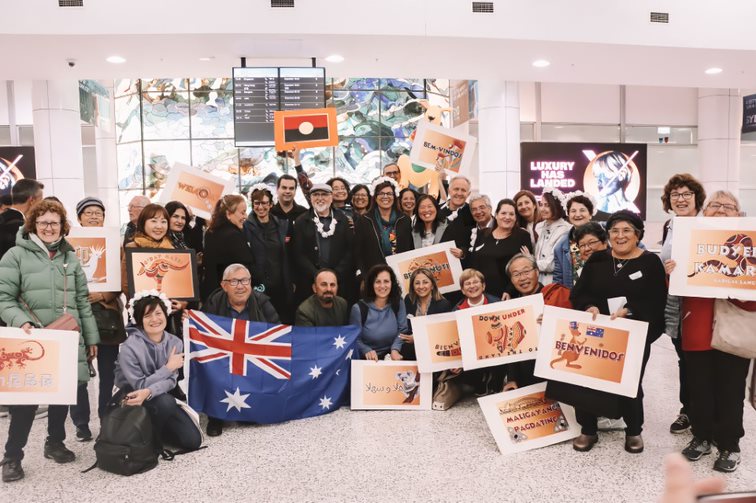
May 19, 2023 | Non categorizzato
We have come to the Australian stage of THE journey BY Margaret Karram and Jesús Morán, President and Co-President of the Focolare Movement. IT IS a continent with extraordinary cultural riches and a diverse and multicultural Focolare family.
Suva to Sydney
 Margaret and Jesús have certainly taken radical leaps throughout this trip. (Just think of their jump from Japan to Fiji.) The flight from Suva to Sydney 9 May was certainly similar, as the sudden shift from seeing the handful of fishing villages on the south coast of Fiji’s main island to the bright shiny jewel of a city in Australia is nothing short of extreme.
Margaret and Jesús have certainly taken radical leaps throughout this trip. (Just think of their jump from Japan to Fiji.) The flight from Suva to Sydney 9 May was certainly similar, as the sudden shift from seeing the handful of fishing villages on the south coast of Fiji’s main island to the bright shiny jewel of a city in Australia is nothing short of extreme.
The shimmering lights of iconic Sydney harbour were on full display as our plane circled closely, almost as if to proudly show off this ‘beaut’ of a city.
Stepping into this multicultural metropolis, our diverse local community is there to welcome them in their many languages. They hail from South Korea, Philippines, China, Hong Kong, Lebanon, Sudan, Iraq, Syria, Bangladesh, Brazil, and of course Anglo-Celtic Australia. They are Catholics, Melkites, Chaldeans, Anglicans; the local Focolare region of Sydney includes Brisbane, Australian capital Canberra and their surrounding areas.
Meeting the Archbishop of Canberra
Connecting with the local Church remains top priority. During a profound yet light-hearted meeting with Archbishop Christopher Prowse, currently the archbishop of Canberra, he spotlighted the life of Mary MacKillop, Australia’s first saint.
“If Mary McKillop were alive today, she would be very comfortable with Focolare,” the archbishop said, pointing to her interfaith works.
He took us to her tomb and prayed that like her, the charism of unity would bloom like a rose, spreading its scent throughout Australia.
In through the art door
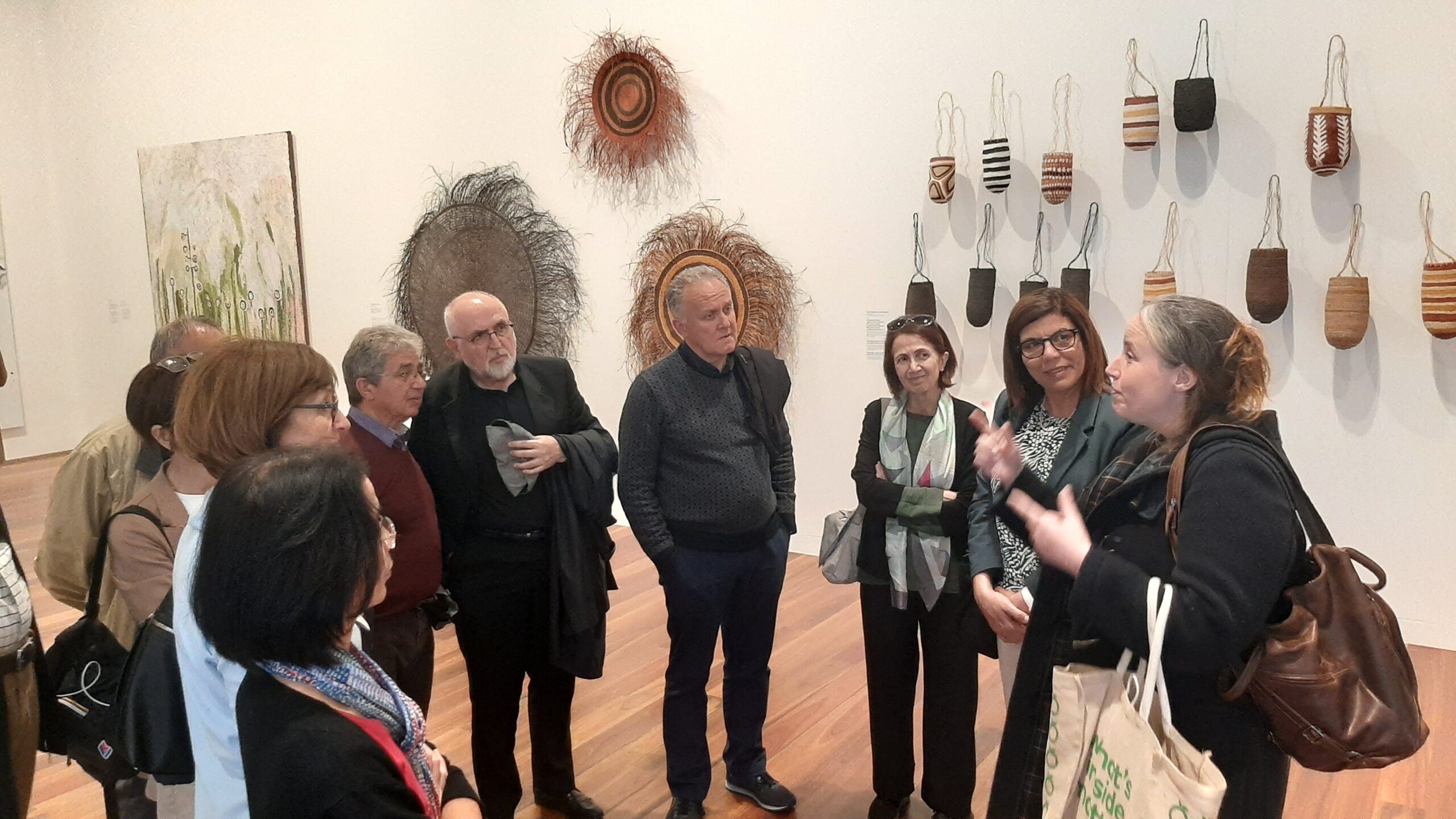
A clear window into an indigenous culture is through its art, but to know what you are looking at, having a guide is essential.
Enter Alexandra Gaffikin, an English Volunteer in Sydney with extensive experience in the museum and heritage sector. Her roles have included ‘head of interpretation’ at a museum, which certainly was handy as the group visited the Art Gallery of New South Wales for an exhibition on contemporary Aboriginal art.
Iconic bark paintings, for instance, were shown to be so much more: they are at once histories, maps, title deeds, and rulebooks even. They can be three dimensional, with underpainting showing underground water sources, for example.
In Aboriginal culture, these artworks are alive as people (and could even be painted on someone’s body). These are living collections displaying knowledge passed down through millennia.
Moments to enjoy Sydney
Amid a day full of meetings, Margaret and Jesús were able to fit in some time to take in Sydney, hopping on one of the many ferries and heading towards Circular Quay and the iconic Sydney Opera House. The views are spectacular! Happy to get behind the camera for a bit, Margaret ended up snapping quite a few pictures herself.
The upside of merging across the globe
This visit was an opportunity for focolarini from across the region – including from as far as Perth, Wellington and Fiji – to come together for some meaningful sessions. It is a time where the movement’s organisation has been merging, and now as a result exceedingly different cultures (think Korea, Japan and Chinese speaking areas, for instance) now need to adjust and collaborate directly.
“I think up until now we didn’t understand all the consequences and all the positive things, even though it has been very difficult all this process.
“But we will see the consequences, I think, in a few years. Because what it is helping us is to really break down all the barriers… first of all in our hearts, and the barriers between nations…
“If we want to have peace, we have to have peace among us focolarini and among communities. We have to look at other countries… as our own countries and discover that we can be this ‘connecting family’…
“We don’t have to give other people our richness, we have to help them to discover theirs.”
Margaret Karram
A special presence despite medical challenges
There was a particularly meaningful moment when three married focolarine who are seriously ill were able to greet everyone remotely.
“I just want to assure you of my unity. Much as I would’ve wanted, I was fully booked, but I had to change because of what God had in store for me,” said one.
“It’s been good because I feel where I’m where God wanted me to be, but it’s not where I wanted to be,” another told the group.
“Physically I can’t run, but inside I really want to run, I’m so excited,” said the third. “Enthusiasm does not have any age.”
Welcome to country
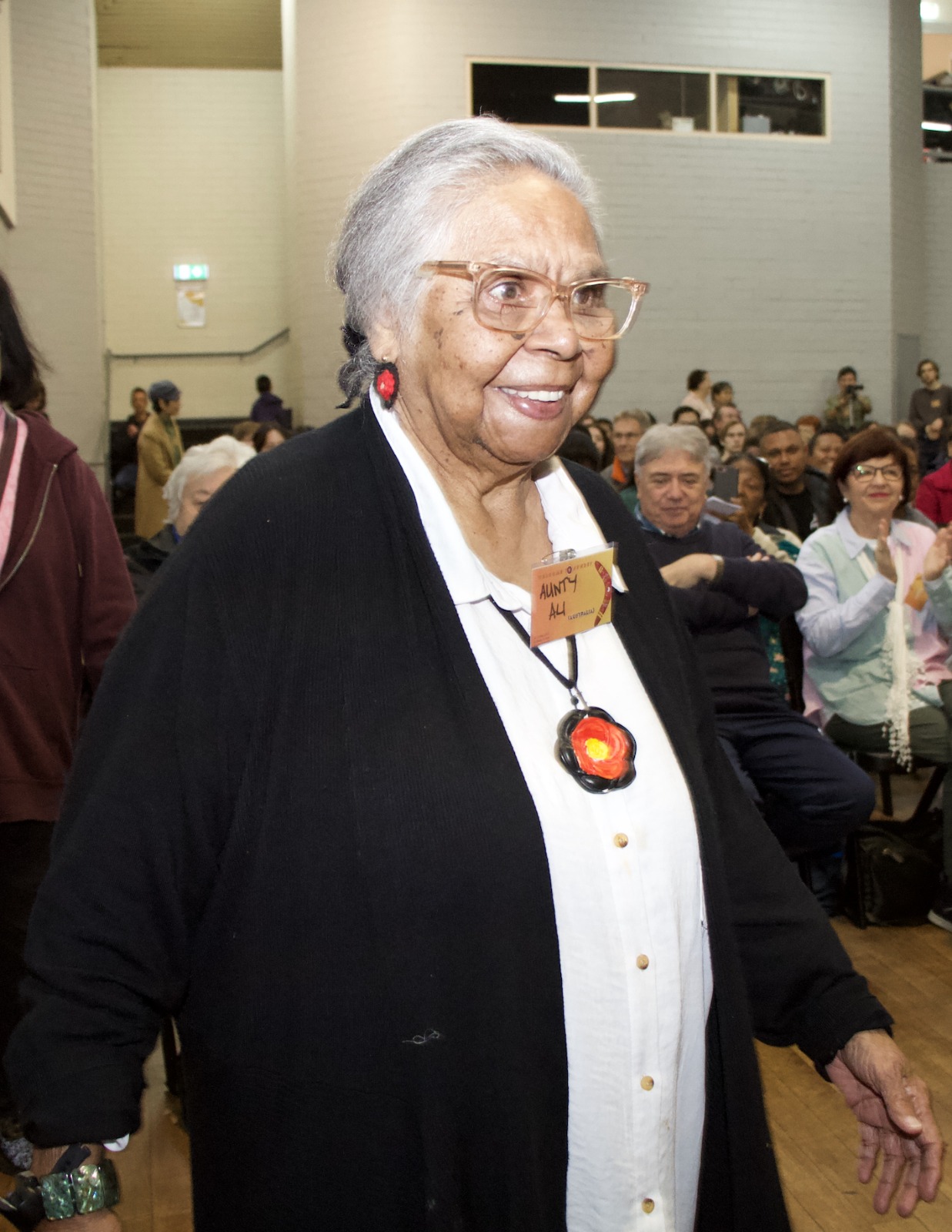
Aboriginal culture in Australia is the oldest continuous culture known, dating back at least 60,000 years. The proper protocol when beginning meetings in Australia is to have a ‘welcome to country’ from an Aboriginal elder, or a formal acknowledgement of the traditional custodians of the land.
As the Focolare community gathered from throughout Australia, we were privileged to have ‘Aunty Ali’ Golding, a Biripi elder, to welcome us all.
She grew up on an Aboriginal mission and later lived in a suburb of Sydney for over 20 years. In the 1980s, Ali was one of the first Aboriginal education assistants, and in 2004, she gained her diploma in theology.
She has contributed to various local, national and international forums, including the New South Wales Reconciliation Council and Australians for Native Title and Reconciliation. This has helped deepen public understanding of indigenous culture and history for the public.
Aunty Ali’s presence at our Focolare event with Margaret and Jesús certainly deepened our appreciation for this national treasure and her rich heritage. “It has been one of the most heartfelt welcomes that I have ever experienced,” she said. “Here I felt the Creator’s spirit.”
The best meeting of the whole trip (so far)
Margaret and Jesús had a dynamic, insightful meeting with close to 30 young people. When asked about their challenges, they did not hold back, but spoke candidly of the indifference they encounter with their peers daily. Their numbers are small; the distances are huge.
Margaret shared her early Gen life in Haifa with her sister, and how they started small, receiving the Gen magazine by mail. She was proud of how they had begun, and said she was just as proud of those present for moving forward with their Gen life.
Jesús encouraged the young people as well, making the effort to reassure them that sharing their difficulties was not negative at all. “This was the best meeting of this entire trip,” he said at the end. “I liked it a lot.”
Drawing on rich experience
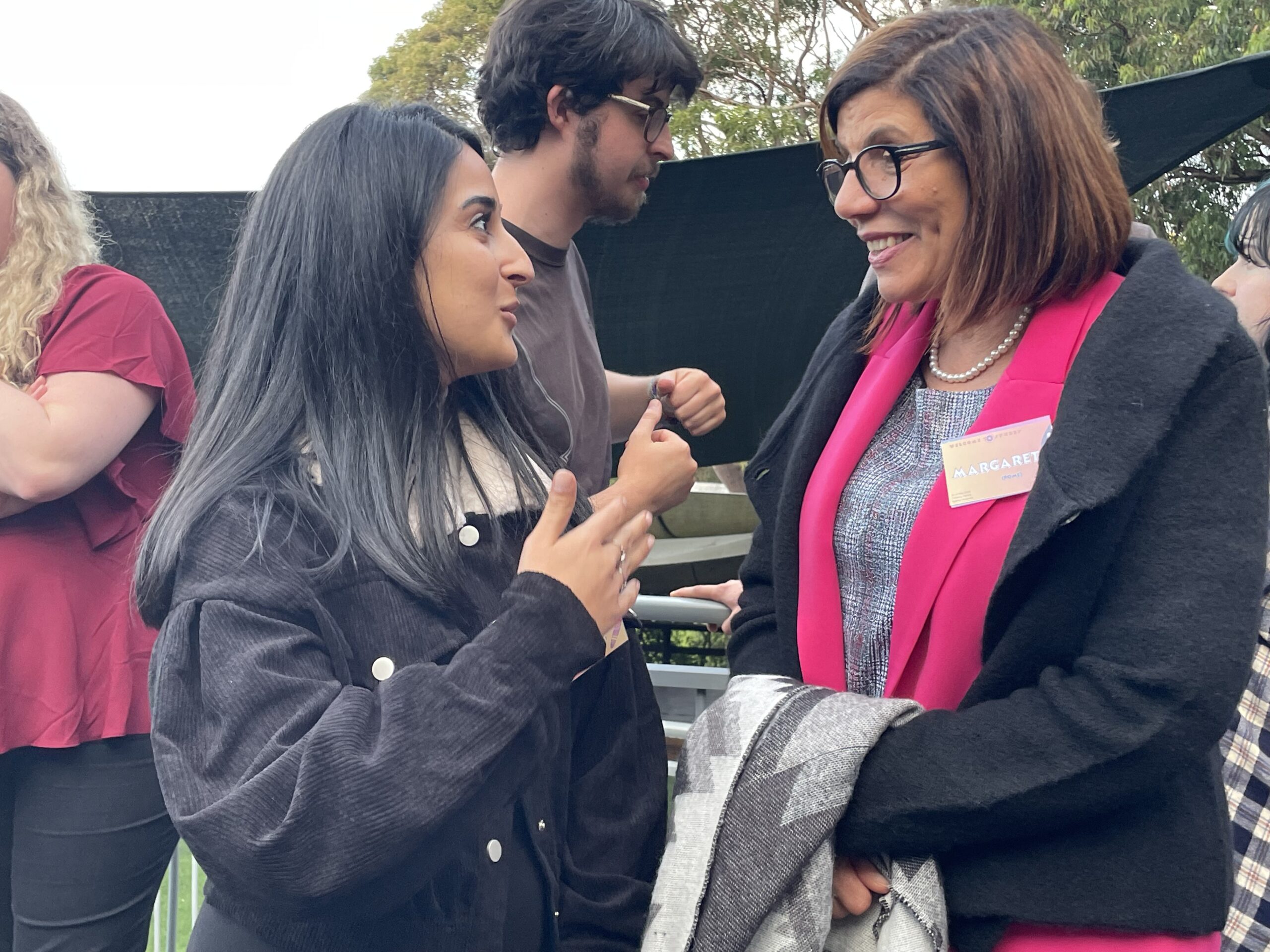
Rita and Antonio, who look after the Focolare Oceania region from Rome, have also been travelling with the group. When asked how they live dialogue and fraternity in conflict situations, they reached into their own vast backgrounds.
“My experience in interreligious dialogue has been discovering that we are walking together towards God,” said Antonio.
“Dialogue is an encounter,” Rita added. “What is really important is to meet the other and discover that love drives fear away.”
How to bodysurf (spiritually)
The surf was certainly ‘up’ on the beaches around Sydney, with young and old donning their wetsuits and grabbing their boards to catch a few waves. ‘Bodysurfing’ is also popular – people ride the ocean waves without a board as well. It’s truly exhilarating.
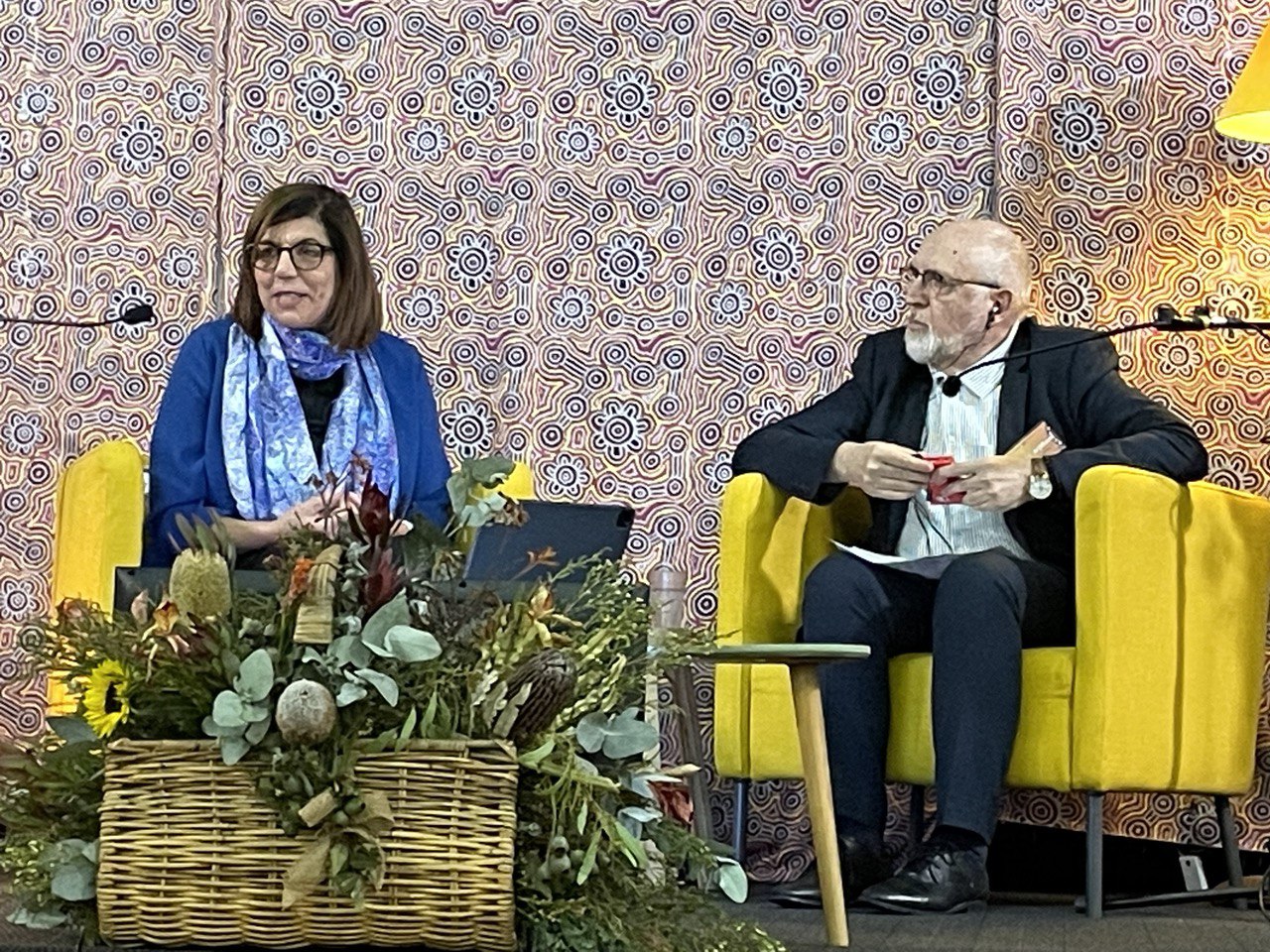
But to get out to where the best waves are to ride, first you have to deal with the powerful ones rolling in towards you — the ones you don’t want to ride, the ones you aren’t ready for.
“Someone explained to me the dynamics of this sport, and right away what came to my mind was our love for Jesus Forsaken,” Margaret said.
Bodysurfers essentially dive deep below those incoming waves they don’t want to ride, so low that they can touch the sand at the bottom. Doing so, they avoid getting swept away by the power of the ocean. Once the wave rolls over, they come back to the surface to find a wave worth riding.
“Like those who bodysurf, you don’t fight the waves, you don’t ‘fight the trials’, but you go to the bottom of your heart, recognising Jesus in every pain, and continuing to love him, you come up again, finding the light through love.”
T. M. Hartmann
May 19, 2023 | Non categorizzato
In these words of St Paul, fraternity is a call to goodness, to the life that is born from baptism, and this kinship in love allows us to see the other’s existence as a precious gift for us. The grade I was in the third year of high school and had an important physics oral exam coming up. I started studying hard knowing that I would be tested the following day (I was the only one in the whole class who didn’t have the end of term grade). Shortly afterwards, my little sister came to ask for help with her studies. At first I said no but then I was reminded of what St Paul tells us: rejoice with those who rejoice and weep with those who weep. So I started studying with my sister. It took the whole afternoon for her to feel prepared so I hardly managed to open my physics book. The following day I went to school, with my heart racing but convinced that God would intervene somehow. The teacher came in and started testing my other classmates. At the end of the lesson I asked him why he hadn’t called me. He looked at his register and said: ‘But you’ve already got the grade, and it’s a good grade’. I knew very well that I had never been tested, so maybe he put it there because of something I had said. (S.T. – Italy) How to get through the day A man in a wheelchair was begging near the supermarket trolleys. On my way out, I approached him and, after exchanging a few words with him, invited him to pick something from my shopping that he needed. He happily took some food and immediately started eating it. As I said goodbye to him, I experienced such a joy that it helped me face the challenges of a day that had got off to a difficult start. It made me realise that doing a concrete act of love is a good start to the day. I started doing this, overcoming many bad habits and surprising not only my husband, but especially the children who do not always appreciate what they have because they think everything is their due. One evening, hearing the news that an uncle was seriously ill left everyone in the family not knowing what to say until our eldest son, who goes to university, asked what we could do for him. At that point our youngest daughter replied: ‘We have to do what mum does who puts love into everything she does. That will help us discover what uncle needs’. (L. D. F. – Hungary) Adele “Bipolarity”… I never knew that my dear schoolmate, Adele, had such a serious illness. It was her mother who explained it to me. After spending some time in hospital, on certain days, when her centre seemed unstable, she herself did not understand what was happening to her. The medicines had to find a balanced effect, and it took time. But it did not change my affection and esteem for her. I was amazed the day she asked me to pray the rosary. It seemed she had perfect concentration when she prayed. From then on, we started reading spiritual books or stories with a positive content. I had the impression that my friend understood everything more deeply than I did. When we discussed certain topics, I saw in her a boundless altruism. Together we joined a volunteering group for the poor. Adele got back her life, balance and courage. She knew more than anyone else how to be close to those in need. My experience with her made it clearer to me that a person is truly fulfilled through charity. (P.A.M. – Italy)
Edited by Maria Grazia Berretta
(taken from Il Vangelo del Giorno, Città Nuova, year IX – no.1 May-June 2023)
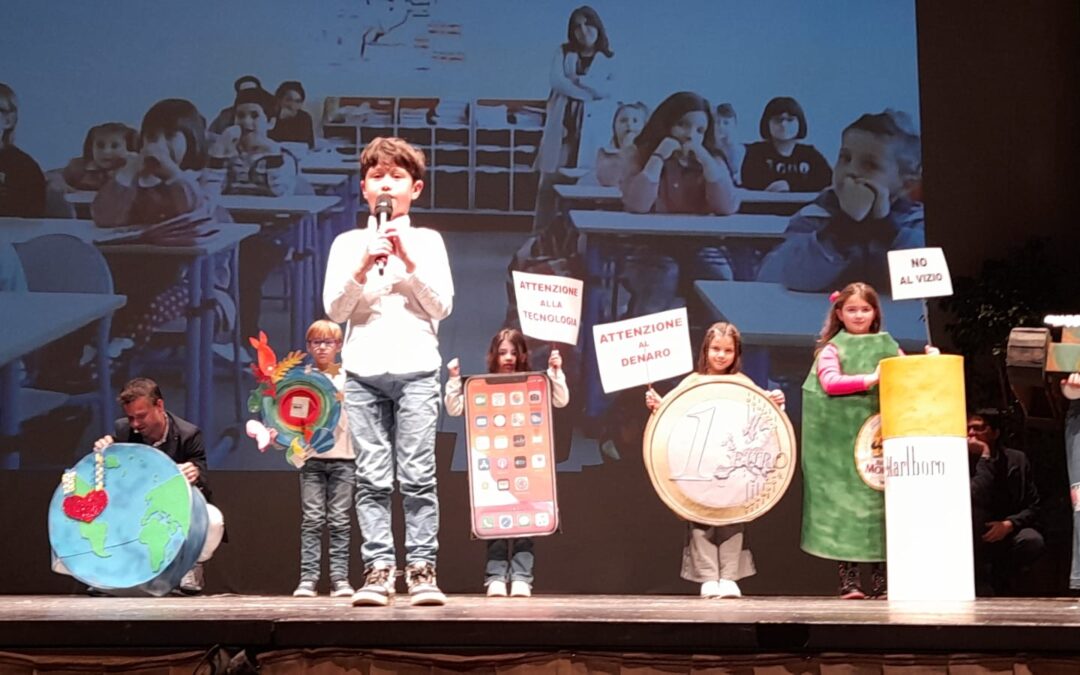
May 15, 2023 | Non categorizzato
The third award ceremony of the schools competition, “One city is not enough. Chiara Lubich, citizen of the world” took place on 12th May. There were 136 drawings entries. We spoke to Cinzia Malizia, teacher of the 1st A Class of the I.C. Camerano – John Paul II – Sirolo (Ancona-Italy) which was awarded the first prize in the primary school section. 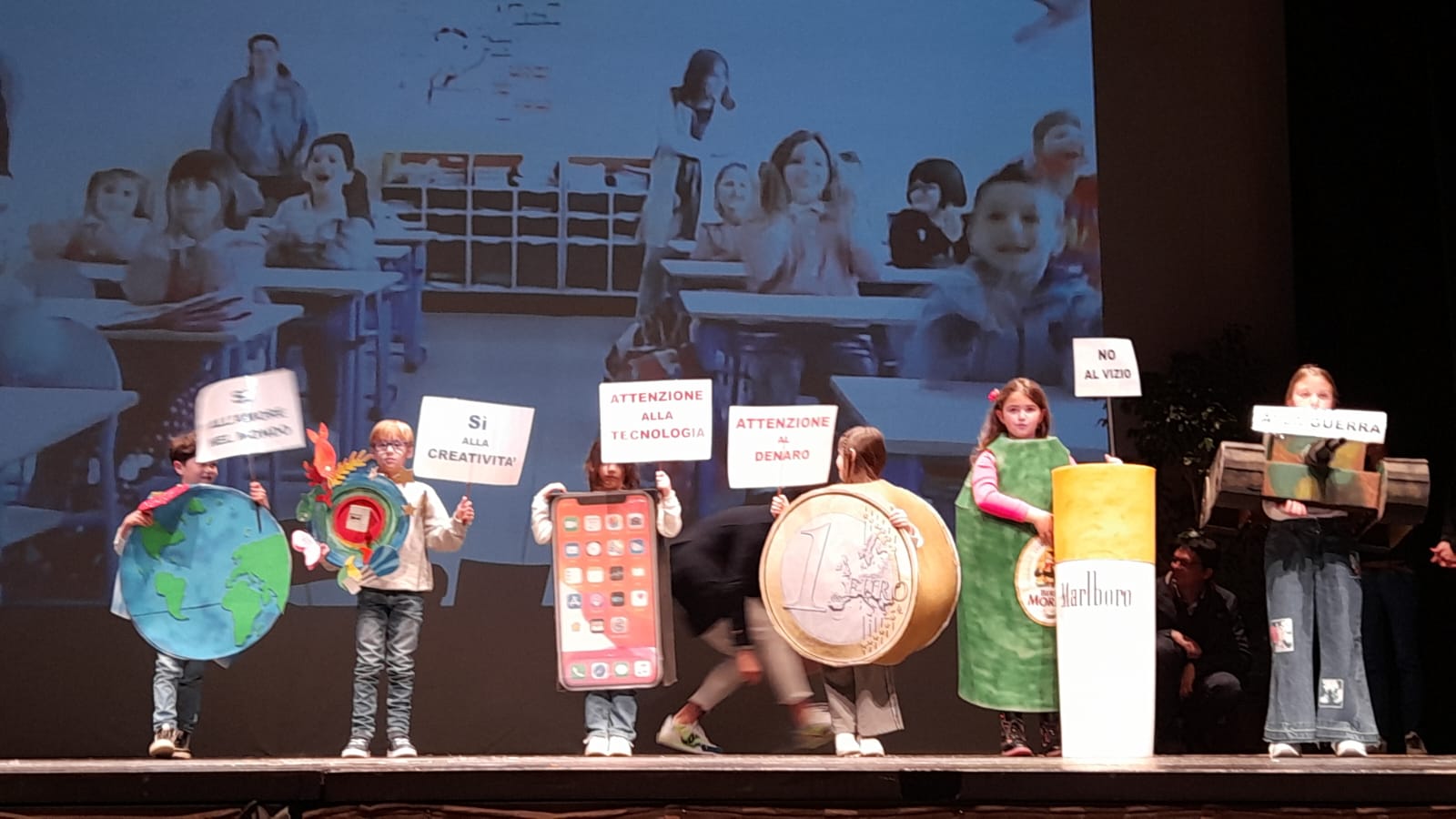 The 2022-2023, third national competition for schools, “One city is not enough. Chiara Lubich citizen of the world”, was promoted by the Chiara Lubich Centre in collaboration with the Ministry of Education and Merit, the Fondazione Museo Storico del Trentino and New Humanity of the Focolare Movement. The title of the winning multimedia graphic essay for the primary section was “Patterns of love”. It was produced by the children of the 1st A of the I.C. Camerano – John Paul II – Sirolo di Camerano (Ancona-Italy), guided by their teacher, Cinzia Malizia. Ms. Malizia, how did you find out about this competition? As can be seen from our video, mine is a very lively class, sometimes challenging and difficult to manage. Despite being 7-year-olds, they give me a lot to do and, since they are children of the Covid era, I noticed a certain difficulty when identifying their feelings, to bring out the “good” things, positive gestures and kind words. I asked myself: “how can I get to the hearts of these children?” I started looking for some projects on Miur (Ministry of Education and Merit), some competitions that might help, especially for some personalities that could be an example. This is how I came to Chiara Lubich, a person I had heard of but knew little about. I started reading her story and, little by little, together with the children, we followed a pathway with the aim of enabling them to above all rediscover that curiosity, that amazement, that wonder that unfortunately seem lost in today’s society.
The 2022-2023, third national competition for schools, “One city is not enough. Chiara Lubich citizen of the world”, was promoted by the Chiara Lubich Centre in collaboration with the Ministry of Education and Merit, the Fondazione Museo Storico del Trentino and New Humanity of the Focolare Movement. The title of the winning multimedia graphic essay for the primary section was “Patterns of love”. It was produced by the children of the 1st A of the I.C. Camerano – John Paul II – Sirolo di Camerano (Ancona-Italy), guided by their teacher, Cinzia Malizia. Ms. Malizia, how did you find out about this competition? As can be seen from our video, mine is a very lively class, sometimes challenging and difficult to manage. Despite being 7-year-olds, they give me a lot to do and, since they are children of the Covid era, I noticed a certain difficulty when identifying their feelings, to bring out the “good” things, positive gestures and kind words. I asked myself: “how can I get to the hearts of these children?” I started looking for some projects on Miur (Ministry of Education and Merit), some competitions that might help, especially for some personalities that could be an example. This is how I came to Chiara Lubich, a person I had heard of but knew little about. I started reading her story and, little by little, together with the children, we followed a pathway with the aim of enabling them to above all rediscover that curiosity, that amazement, that wonder that unfortunately seem lost in today’s society. 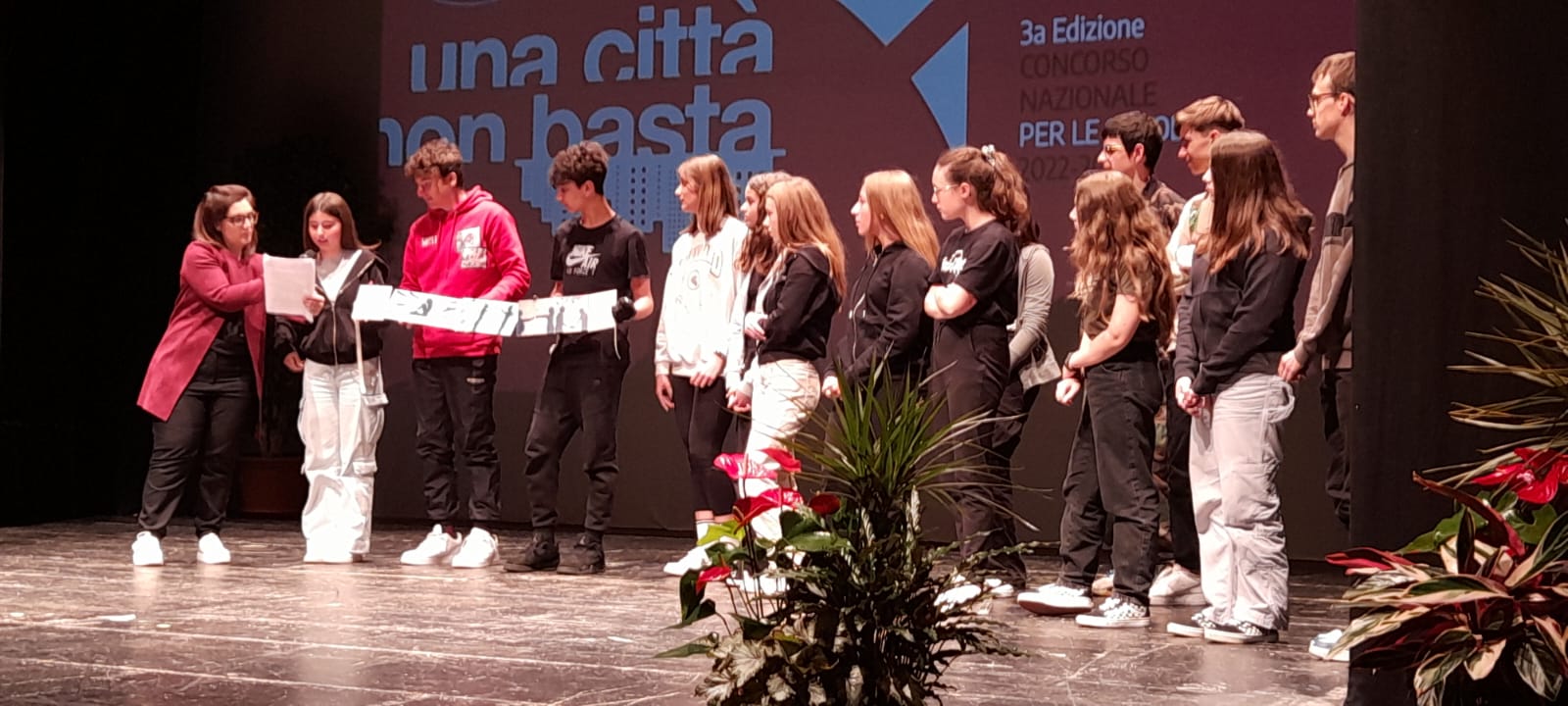 Did you have a particular focus? I wanted to work with them on emotions, to understand what they had inside. We dealt with fear, worked on anger, joy and so many experiences came out. They started talking, expressing themselves in their own way, and what used to be the weak point of my class turned into a real strength. In our video you will hear the words, “From fear we found the courage”. The children were the first to understand how good it is for the heart to say “sorry”, to say “thank you” or “good morning”. It’s not that children have changed radically now, they are always the same, they can’t keep still, they scream, they ignore the rules, but there are beginning to be gestures that are small but at the same time great because they are part of a journey we are on together. Chiara Lubich was a guide for us, a reassuring figure, almost like a “grandmother”, who with messages of love, hope and her example really worked to create a better world. Even simply looking at each other with love, regardless of social background, religion, skin colour or culture has affected them a lot. They experienced this in the classroom, with their Muslim companion and this means nurturing good feelings, hoping for a different society. We teachers cannot give up. These children have so much to give.
Did you have a particular focus? I wanted to work with them on emotions, to understand what they had inside. We dealt with fear, worked on anger, joy and so many experiences came out. They started talking, expressing themselves in their own way, and what used to be the weak point of my class turned into a real strength. In our video you will hear the words, “From fear we found the courage”. The children were the first to understand how good it is for the heart to say “sorry”, to say “thank you” or “good morning”. It’s not that children have changed radically now, they are always the same, they can’t keep still, they scream, they ignore the rules, but there are beginning to be gestures that are small but at the same time great because they are part of a journey we are on together. Chiara Lubich was a guide for us, a reassuring figure, almost like a “grandmother”, who with messages of love, hope and her example really worked to create a better world. Even simply looking at each other with love, regardless of social background, religion, skin colour or culture has affected them a lot. They experienced this in the classroom, with their Muslim companion and this means nurturing good feelings, hoping for a different society. We teachers cannot give up. These children have so much to give. 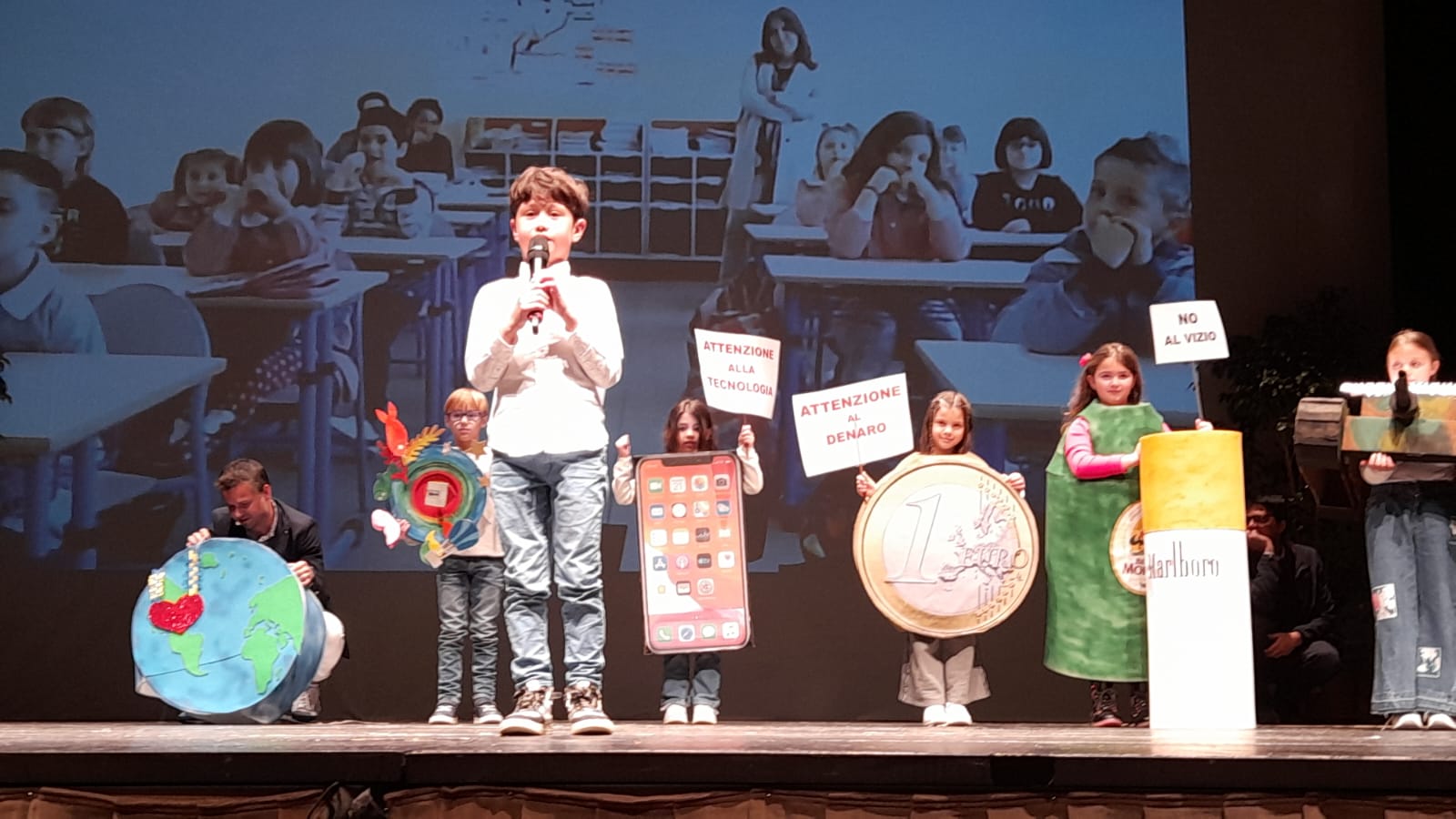 How did the children react when they learned they had won the first prize? They were elated, really happy. We worked for months and months and I really think they deserved it. Unfortunately, we were unable to find the means for us all to be able to go to Trent for the award ceremony. Some of us took part by video link while 6 children were able to go, accompanied by their families who were happy to use their own resources to finance the trip. They too were very happy with this project. We worked a lot together, so much together that at the end of the year we’ll do a play based on emotions. The parents themselves have collaborated by making most of the masks that the children will wear and we even brought some of these to the award ceremony. So our journey doesn’t end there. At the beginning, the principal, Dr. Flavia Maria Teresa Valentina Cannizzaro, said to me: “Cinzia, they are so small, do they understand what you are saying?” I hope so, if nothing else they have heard and hearing good things never hurts. I think it’s important that children understand that even before being capable, what matters is being good, having a kindness of mind that allows us to change things for the better. I think Chiara Lubich’s experience really helped them. CONCORSO NAZIONALE “Una città non basta, Chiara Lubich cittadina del mondo”! – IC “CAMERANO – GIOVANNI PAOLO II – SIROLO” (iccamerano.edu.it)
How did the children react when they learned they had won the first prize? They were elated, really happy. We worked for months and months and I really think they deserved it. Unfortunately, we were unable to find the means for us all to be able to go to Trent for the award ceremony. Some of us took part by video link while 6 children were able to go, accompanied by their families who were happy to use their own resources to finance the trip. They too were very happy with this project. We worked a lot together, so much together that at the end of the year we’ll do a play based on emotions. The parents themselves have collaborated by making most of the masks that the children will wear and we even brought some of these to the award ceremony. So our journey doesn’t end there. At the beginning, the principal, Dr. Flavia Maria Teresa Valentina Cannizzaro, said to me: “Cinzia, they are so small, do they understand what you are saying?” I hope so, if nothing else they have heard and hearing good things never hurts. I think it’s important that children understand that even before being capable, what matters is being good, having a kindness of mind that allows us to change things for the better. I think Chiara Lubich’s experience really helped them. CONCORSO NAZIONALE “Una città non basta, Chiara Lubich cittadina del mondo”! – IC “CAMERANO – GIOVANNI PAOLO II – SIROLO” (iccamerano.edu.it)
Maria Grazia Berretta
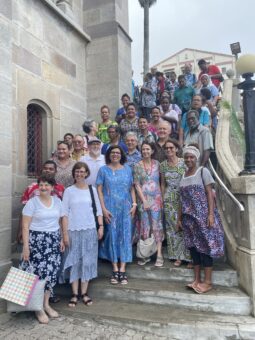
May 12, 2023 | Non categorizzato
The third stage of Margaret Karram and Jesús Morán’s journey to Asia and Oceania was to Fiji. The spirituality of unity began to spread in this part of the Pacific at the end of the 1960s. The Focolare in the Pacific, one family Although Margaret Karram and Jesús Morán arrived in Fiji on 3rd May, the official start of the stage of their journey in Oceania took place two days later, with the “Sevusevu” ceremony. Over 200 people attended, including representatives of the local Church. The ceremony sealed their entry, and the delegation from the Centre accompanying them, into the Fijian community, both ecclesial and social. Sevusevu: the gift of welcome 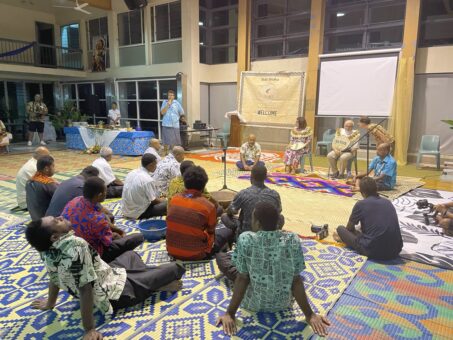 Those arriving in the archipelago are welcomed with the ceremony of ‘Sevusevu’ – meaning ‘gift’. And from that moment on they are no longer visitors, but part of the community and members, with all the rights and privileges of being on Fijian soil. The President and Co-President of the Focolare received precious garlands and the Kava root, derived from the pepper plant, which has ancestral significance. The two ‘candidates’ were presented to the community by ‘heralds’, who spoke on their behalf. They then drank the drink made from Kava in one go and received the ‘Tabua’, a whale tooth which has sacred meaning: it is the most precious object in Fijian culture, and it was offered to them as a sign of the highest esteem and honour. Traditions in the Pacific: where the present and future of peoples are rooted Right from the start, we realised that, in the Pacific, traditions feature in a significant and living way, which is relevant for today They are not relegated to a past that has nothing to do with people’s daily lives but form the foundation of their way of life. Among the values that traditions continue to hand on are respect, welcome, reciprocity, social solidarity, and a very deep and longstanding bond with nature. “Margaret Karram, Jesús Morán and the Focolare delegation have arrived at a particular time in the life of the Fiji Islands,” explained Peter Emberson, a Fijian, engaged in multilateral consultancy and a political analyst for the government of Fiji and the United Nations, who has known the movement since he was a child. “The present government is more open and democratic, and I see Margaret and Jesús’ visit as part of this process of social and political renewal. There are two questions that here in the Pacific we always ask an official delegation that lands on the shores of our islands: ‘Where are you from?’ and ‘Why have you come?’ At the ‘Sevusevu’ Margaret stood before the Fijian people and offered her commitment and that of the Focolare Movement to build unity here too. It is an identity-making response, which says a lot about the contribution that the Movement can make to our country. And this builds trust”. A region that is still too little known
Those arriving in the archipelago are welcomed with the ceremony of ‘Sevusevu’ – meaning ‘gift’. And from that moment on they are no longer visitors, but part of the community and members, with all the rights and privileges of being on Fijian soil. The President and Co-President of the Focolare received precious garlands and the Kava root, derived from the pepper plant, which has ancestral significance. The two ‘candidates’ were presented to the community by ‘heralds’, who spoke on their behalf. They then drank the drink made from Kava in one go and received the ‘Tabua’, a whale tooth which has sacred meaning: it is the most precious object in Fijian culture, and it was offered to them as a sign of the highest esteem and honour. Traditions in the Pacific: where the present and future of peoples are rooted Right from the start, we realised that, in the Pacific, traditions feature in a significant and living way, which is relevant for today They are not relegated to a past that has nothing to do with people’s daily lives but form the foundation of their way of life. Among the values that traditions continue to hand on are respect, welcome, reciprocity, social solidarity, and a very deep and longstanding bond with nature. “Margaret Karram, Jesús Morán and the Focolare delegation have arrived at a particular time in the life of the Fiji Islands,” explained Peter Emberson, a Fijian, engaged in multilateral consultancy and a political analyst for the government of Fiji and the United Nations, who has known the movement since he was a child. “The present government is more open and democratic, and I see Margaret and Jesús’ visit as part of this process of social and political renewal. There are two questions that here in the Pacific we always ask an official delegation that lands on the shores of our islands: ‘Where are you from?’ and ‘Why have you come?’ At the ‘Sevusevu’ Margaret stood before the Fijian people and offered her commitment and that of the Focolare Movement to build unity here too. It is an identity-making response, which says a lot about the contribution that the Movement can make to our country. And this builds trust”. A region that is still too little known 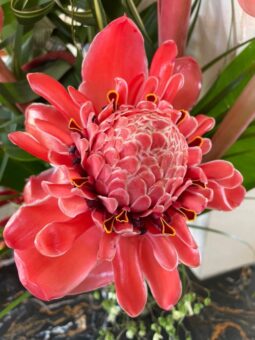 Oceania is a little-known continent and although, in a territorial sense, it is the largest on the globe, in terms of land mass it is the smallest. In addition to Australia and New Zealand, it includes the Pacific region, consisting of 26 nation states and territories. The main ethnic groups are Melanesians, Micronesians, and Polynesians. In total, the Pacific region has a population of 16 million people and in the last 100 years, the Fiji Islands (almost one million inhabitants), have become the political and economic heart of the region. There is a diverse religious landscape in which Christianity is the most practised faith, followed by Hinduism and Islam. Catholicism arrived in the 19th century and today Catholics number just over 82,000. Father Soane Fotutata, secretary of the Episcopal Conference of the Pacific (CEPAC), during a dinner in the focolare, spoke about the challenges facing society and the Church in this vast territory, where the Catholic Church has 14 dioceses. He explained that the ecological crisis threatens the very existence of people and communities. It is seen in rising sea levels, acidifying oceans, droughts, floods, and extreme weather events that have become more frequent. Then there are social wounds such as economic and climate migration from many islands; prostitution, alcoholism, and poverty, to which the local Church is trying to respond. 2022: the arrival of the focolares in Suva It was in this ecclesial context that the women’s and men’s focolares opened a year ago in Suva, the capital of Fiji. Their presence, in fact, is also linked to a project supported by Missio Scotland and Missio Australia, to collaborate in the diocesan pastoral care for young people preparing for confirmation and post confirmation with a programme that focuses on supporting the handing on of cultural riches between generations. Lourdes Rank, from Brazil, and Stephen Hall, from New Zealand explained: “On our arrival, the Archbishop asked us to be first of all at the service of the Church and to be part of its activities and projects. We got involved in catechesis, with young people and in the life of our parishes. This approach has been very positive: we are now truly part of the life of the Church and we have begun to build relationships with a number of priests, religious and lay people’. In this regard, the vicar general of the Archdiocese of Suva, Mgr Sulio Turagakacivi, expressed his gratitude for the service that the focolares give in the local Church. Thanking him, Margaret said: “We can learn from the Church here how to live the synodal process and how to maintain the freshness of the encounter between the Gospel and the local society and culture“. In Futuna the first seed of the spirituality of unity The first seed of the spirituality of unity in the Pacific was planted in the island of Futuna in the late 1960s by Sr. Anna Scarpone, a Marist missionary. The first Pacific focolare was then based in Numea (New Caledonia) from 1992 to 2008, accompanying the growth of a vibrant local community. Today, the two focolares in Fiji are ‘home’ for all the Movement’s communities in the Pacific region, which, besides New Caledonia and Fiji, are in Kiribati, Wallis and Futuna, with some people who already know about the spirituality in Papua New Guinea, Samoa and Vanuatu. Together for the first time
Oceania is a little-known continent and although, in a territorial sense, it is the largest on the globe, in terms of land mass it is the smallest. In addition to Australia and New Zealand, it includes the Pacific region, consisting of 26 nation states and territories. The main ethnic groups are Melanesians, Micronesians, and Polynesians. In total, the Pacific region has a population of 16 million people and in the last 100 years, the Fiji Islands (almost one million inhabitants), have become the political and economic heart of the region. There is a diverse religious landscape in which Christianity is the most practised faith, followed by Hinduism and Islam. Catholicism arrived in the 19th century and today Catholics number just over 82,000. Father Soane Fotutata, secretary of the Episcopal Conference of the Pacific (CEPAC), during a dinner in the focolare, spoke about the challenges facing society and the Church in this vast territory, where the Catholic Church has 14 dioceses. He explained that the ecological crisis threatens the very existence of people and communities. It is seen in rising sea levels, acidifying oceans, droughts, floods, and extreme weather events that have become more frequent. Then there are social wounds such as economic and climate migration from many islands; prostitution, alcoholism, and poverty, to which the local Church is trying to respond. 2022: the arrival of the focolares in Suva It was in this ecclesial context that the women’s and men’s focolares opened a year ago in Suva, the capital of Fiji. Their presence, in fact, is also linked to a project supported by Missio Scotland and Missio Australia, to collaborate in the diocesan pastoral care for young people preparing for confirmation and post confirmation with a programme that focuses on supporting the handing on of cultural riches between generations. Lourdes Rank, from Brazil, and Stephen Hall, from New Zealand explained: “On our arrival, the Archbishop asked us to be first of all at the service of the Church and to be part of its activities and projects. We got involved in catechesis, with young people and in the life of our parishes. This approach has been very positive: we are now truly part of the life of the Church and we have begun to build relationships with a number of priests, religious and lay people’. In this regard, the vicar general of the Archdiocese of Suva, Mgr Sulio Turagakacivi, expressed his gratitude for the service that the focolares give in the local Church. Thanking him, Margaret said: “We can learn from the Church here how to live the synodal process and how to maintain the freshness of the encounter between the Gospel and the local society and culture“. In Futuna the first seed of the spirituality of unity The first seed of the spirituality of unity in the Pacific was planted in the island of Futuna in the late 1960s by Sr. Anna Scarpone, a Marist missionary. The first Pacific focolare was then based in Numea (New Caledonia) from 1992 to 2008, accompanying the growth of a vibrant local community. Today, the two focolares in Fiji are ‘home’ for all the Movement’s communities in the Pacific region, which, besides New Caledonia and Fiji, are in Kiribati, Wallis and Futuna, with some people who already know about the spirituality in Papua New Guinea, Samoa and Vanuatu. Together for the first time  On the occasion of Margaret Karram and Jesús Morán’ visit, the communities met in Suva for a few days. It was their first meeting in one of the Pacific Islands. Many events and customs, such as welcoming and appreciating each other, showed the extent to which everyone realised how precious those days were. For these peoples, coming together as a Focolare family does not only mean having a spiritual communion, but means contributing to daily life. This involves cooking, preparing the liturgy of the Mass, the songs and the dances – each one offering their specific human and cultural “gift” that is shared with that of the others. Margaret and Jesús met with the men and women focolarini for a morning of deep sharing and were able to spend a lot of time experiencing different aspects of the life of the community, such as meals, Mass, with many opportunities just to talk together. The sharing of experiences gave them an insight into the challenges and commitment of the Movement in the Pacific. In New Caledonia, the community is engaged at the service of the Church and, on a social level, in creating opportunities to build up unity between the different ethnic groups on the island. In Futuna and Kiribati, the Word of Life is central, generating experiences of forgiveness and reconciliation in families and also establishing social projects at the service of women and the needy. In Fiji the community is growing and shares a commitment serving the Church together with the focolarini. Run4Unity in Fiji: journeying together The 6th of May was Run4Unity day, and Margaret Karram started the worldwide relay from the Pacific, where we see the world’s first sunrise. With the Teens for Unity, she and Jesús planted two trees typical of the Fiji Islands: “the native sandalwood tree and the citrus tree, which need each other to grow,” she explained. “The sandalwood has the fragrance and the citrus, provides it with all the nutrients it needs. It is a wonderful example of mutual care found in nature. This is what the Pacific Islanders want to say to all of us: the only way to give our precious gift, unity, is to journey together, taking care of each other. In this way we can transform our world’. It is a message that highlights what is perhaps the main characteristic of these islands: living as a community. This emerged clearly in the afternoon and evening of 7th May at the meeting Margaret and Jesús Morán had with the community. “I have come here to be close to you and to share your life at least for a few days,” Margaret Karram told everyone. “What I have found here is very close to my heart and to the culture I come from, which encourages respect for other people and their language, and a sense of family. There are just a few of you, but do not worry: what matters is living the Gospel and bringing unity to those we meet. What you have shared with us during these days has impressed me greatly. Through your love, hospitality and welcome, you have given Jesus to us. But listening to you, I realised that the most precious pearl we possess is Jesus forsaken for whom we have left everything and who is the secret to loving everyone“. Jesús Morán added: “The experiences of forgiveness that you have told us have touched me deeply, and they show that you are living the Gospel, because forgiveness is the greatest newness that the Gospel contains. Forgiveness is not something merely human, only Jesus in us can forgive, and you have shown us this with a unique clarity“. When Margaret Karram was asked her hopes are for the future of the Movement in Oceania, she answered by saying what her hopes are for the whole Movement in the world: that it may become ever more a family, which is not closed in on itself, but is open to dialogue with all so as to fulfil the prayer of Jesus to the Father, which was Chiara Lubich’s dream. At the end she added: “I would like to say that in order to contribute to achieving unity, each country, culture or continent must not lose its own identity. We must remain ourselves. This would be a great gift for the whole Movement and also for the world: to be ourselves, with our riches and our challenges, and to live the charism of unity without leaving aside what we are‘. The applause that followed showed everyone’s gratitude at feeling they were understood. Having begun with the ‘Sevusevu’ ceremony, the visit could not but end with equal solemnity. The farewell ceremony, ‘I-Tatau’, seemed to close a circle. Heralds, speaking in Fijian on behalf of Margaret Karram and Jesús Morán, thanked the community and asked, on their behalf, permission to take their leave. The speaker representing the Fijian community granted them permission to leave and wished them a safe journey in the hope of seeing each other again. The concert that the Pacific communities had prepared for that evening was an extraordinary ‘expo’ of the artistic talents of the peoples present, where dances and songs spoke of their deep connection with the earth and with nature, their pride in their traditions and the desire to share them. But what will remain in everyone’s minds, we believe, were the greetings exchanged between the communities of New Caledonia and Fiji. Sitting opposite each other, they each sang their own farewell song, they waved goodbye to each other looking into each other’s eyes, as if they were leaving their own brothers and sisters. The said to Margaret Karram: “We assure you that we will be one family and, even with our weaknesses, we will do all we can to keep Jesus in the midst in Oceania.
On the occasion of Margaret Karram and Jesús Morán’ visit, the communities met in Suva for a few days. It was their first meeting in one of the Pacific Islands. Many events and customs, such as welcoming and appreciating each other, showed the extent to which everyone realised how precious those days were. For these peoples, coming together as a Focolare family does not only mean having a spiritual communion, but means contributing to daily life. This involves cooking, preparing the liturgy of the Mass, the songs and the dances – each one offering their specific human and cultural “gift” that is shared with that of the others. Margaret and Jesús met with the men and women focolarini for a morning of deep sharing and were able to spend a lot of time experiencing different aspects of the life of the community, such as meals, Mass, with many opportunities just to talk together. The sharing of experiences gave them an insight into the challenges and commitment of the Movement in the Pacific. In New Caledonia, the community is engaged at the service of the Church and, on a social level, in creating opportunities to build up unity between the different ethnic groups on the island. In Futuna and Kiribati, the Word of Life is central, generating experiences of forgiveness and reconciliation in families and also establishing social projects at the service of women and the needy. In Fiji the community is growing and shares a commitment serving the Church together with the focolarini. Run4Unity in Fiji: journeying together The 6th of May was Run4Unity day, and Margaret Karram started the worldwide relay from the Pacific, where we see the world’s first sunrise. With the Teens for Unity, she and Jesús planted two trees typical of the Fiji Islands: “the native sandalwood tree and the citrus tree, which need each other to grow,” she explained. “The sandalwood has the fragrance and the citrus, provides it with all the nutrients it needs. It is a wonderful example of mutual care found in nature. This is what the Pacific Islanders want to say to all of us: the only way to give our precious gift, unity, is to journey together, taking care of each other. In this way we can transform our world’. It is a message that highlights what is perhaps the main characteristic of these islands: living as a community. This emerged clearly in the afternoon and evening of 7th May at the meeting Margaret and Jesús Morán had with the community. “I have come here to be close to you and to share your life at least for a few days,” Margaret Karram told everyone. “What I have found here is very close to my heart and to the culture I come from, which encourages respect for other people and their language, and a sense of family. There are just a few of you, but do not worry: what matters is living the Gospel and bringing unity to those we meet. What you have shared with us during these days has impressed me greatly. Through your love, hospitality and welcome, you have given Jesus to us. But listening to you, I realised that the most precious pearl we possess is Jesus forsaken for whom we have left everything and who is the secret to loving everyone“. Jesús Morán added: “The experiences of forgiveness that you have told us have touched me deeply, and they show that you are living the Gospel, because forgiveness is the greatest newness that the Gospel contains. Forgiveness is not something merely human, only Jesus in us can forgive, and you have shown us this with a unique clarity“. When Margaret Karram was asked her hopes are for the future of the Movement in Oceania, she answered by saying what her hopes are for the whole Movement in the world: that it may become ever more a family, which is not closed in on itself, but is open to dialogue with all so as to fulfil the prayer of Jesus to the Father, which was Chiara Lubich’s dream. At the end she added: “I would like to say that in order to contribute to achieving unity, each country, culture or continent must not lose its own identity. We must remain ourselves. This would be a great gift for the whole Movement and also for the world: to be ourselves, with our riches and our challenges, and to live the charism of unity without leaving aside what we are‘. The applause that followed showed everyone’s gratitude at feeling they were understood. Having begun with the ‘Sevusevu’ ceremony, the visit could not but end with equal solemnity. The farewell ceremony, ‘I-Tatau’, seemed to close a circle. Heralds, speaking in Fijian on behalf of Margaret Karram and Jesús Morán, thanked the community and asked, on their behalf, permission to take their leave. The speaker representing the Fijian community granted them permission to leave and wished them a safe journey in the hope of seeing each other again. The concert that the Pacific communities had prepared for that evening was an extraordinary ‘expo’ of the artistic talents of the peoples present, where dances and songs spoke of their deep connection with the earth and with nature, their pride in their traditions and the desire to share them. But what will remain in everyone’s minds, we believe, were the greetings exchanged between the communities of New Caledonia and Fiji. Sitting opposite each other, they each sang their own farewell song, they waved goodbye to each other looking into each other’s eyes, as if they were leaving their own brothers and sisters. The said to Margaret Karram: “We assure you that we will be one family and, even with our weaknesses, we will do all we can to keep Jesus in the midst in Oceania.
Stefania Tanesini

 It all started in 2018. Tommaso and I were in Argentina. We met at a conference for young people of the Focolare Movement. Since he is a philosopher, he had been invited as a speaker to talk about freedom. I listened to what he said and liked it very much. Over the years he has continued to engage in dialogue with and for young people, so much so that he has decided to compile some of the exchanges in a book, entitled “The last hour of the night”, which will be released by Città Nuova in August 2023. And then came the idea: “Well if a book is coming out, why not do a podcast that deals with the same content?” And so a few months ago I got a phone call inviting me to help him bring this project to life. Tommaso, why a podcast? Sometimes ideas are like a cocktail: they come out of the union of various things. And this is what happened with “Blessed Doubts”. At a certain point I realized that I had a lot of material for meetings, workshops and dialogues, that I had often prepared with young people. Hence the idea of not restricting important themes such as freedom, choices, fragility and vocation to just one occasion but of being able to offer them to everyone. Then I thought that other languages and themes could also be explored and so here is the podcast. I wanted to create a format more suitable for young people, who often nowadays, find reading a challenge. Or at least, they read something after you’ve convinced them it’s worth it. In all this work, an additional factor was the World Youth Day that dictated the timing of this operation a little. I thought it would be nice that the Focolare Movement could offer something to those who are preparing to go to Lisbon. It will be released on the major podcast platforms (Spotify, Apple Podcast, Google Podcast), one episode per week for 6 weeks. Laura, what age group are you targeting? Our target age range is 18-30 years. This is why the main themes are questions about fragility, freedom, relationships, trying to find one’s place in the world. It’s all about trying to see doubt as a positive thing, as a springboard to live more deeply and more consciously what happens to us.
It all started in 2018. Tommaso and I were in Argentina. We met at a conference for young people of the Focolare Movement. Since he is a philosopher, he had been invited as a speaker to talk about freedom. I listened to what he said and liked it very much. Over the years he has continued to engage in dialogue with and for young people, so much so that he has decided to compile some of the exchanges in a book, entitled “The last hour of the night”, which will be released by Città Nuova in August 2023. And then came the idea: “Well if a book is coming out, why not do a podcast that deals with the same content?” And so a few months ago I got a phone call inviting me to help him bring this project to life. Tommaso, why a podcast? Sometimes ideas are like a cocktail: they come out of the union of various things. And this is what happened with “Blessed Doubts”. At a certain point I realized that I had a lot of material for meetings, workshops and dialogues, that I had often prepared with young people. Hence the idea of not restricting important themes such as freedom, choices, fragility and vocation to just one occasion but of being able to offer them to everyone. Then I thought that other languages and themes could also be explored and so here is the podcast. I wanted to create a format more suitable for young people, who often nowadays, find reading a challenge. Or at least, they read something after you’ve convinced them it’s worth it. In all this work, an additional factor was the World Youth Day that dictated the timing of this operation a little. I thought it would be nice that the Focolare Movement could offer something to those who are preparing to go to Lisbon. It will be released on the major podcast platforms (Spotify, Apple Podcast, Google Podcast), one episode per week for 6 weeks. Laura, what age group are you targeting? Our target age range is 18-30 years. This is why the main themes are questions about fragility, freedom, relationships, trying to find one’s place in the world. It’s all about trying to see doubt as a positive thing, as a springboard to live more deeply and more consciously what happens to us.  Tommaso, how did you determine the topics to be addressed for each episode? My initial idea was to replicate the contents of the book, paraphrasing it. Working with Laura, however, I realized that her questions led the conversation to other areas, that the young people she had in mind were also her university classmates who do not necessarily recognize themselves in any religious creed. I understood that Laura had deep questions that were partly hers and partly reflected her world of relationships: it was from those questions that we had to start to weave something suitable for young adults. What was the most difficult episode for you, Laura? I think the hardest was the first one. We were both a bit nervous, and then we had to introduce the podcast, make it clear why we think it is important to ask questions, not to exist in anxiety or submerged in paranoia. A further challenge was that a few days before we recorded the first few episodes, I had a bad cold and a high temperature. Everything always happens at the same time! But we managed to do it also thanks to the super team that supported us during the recording. Tommaso, what did you gain from this project? I learned a lot from all the people with different skills who worked on this project. Indeed, the realization of “Blessed doubts” was a collective operation. And after you listen to the podcast, we’d love to have your feedback, on Spotify, on our social networks (@Y4UW and Movimento_dei_focolari) or via email (ufficio.comunicazione@focolare.org). For further information about other projects in the pipeline, stay connected to the social channels of the Focolare Movement.
Tommaso, how did you determine the topics to be addressed for each episode? My initial idea was to replicate the contents of the book, paraphrasing it. Working with Laura, however, I realized that her questions led the conversation to other areas, that the young people she had in mind were also her university classmates who do not necessarily recognize themselves in any religious creed. I understood that Laura had deep questions that were partly hers and partly reflected her world of relationships: it was from those questions that we had to start to weave something suitable for young adults. What was the most difficult episode for you, Laura? I think the hardest was the first one. We were both a bit nervous, and then we had to introduce the podcast, make it clear why we think it is important to ask questions, not to exist in anxiety or submerged in paranoia. A further challenge was that a few days before we recorded the first few episodes, I had a bad cold and a high temperature. Everything always happens at the same time! But we managed to do it also thanks to the super team that supported us during the recording. Tommaso, what did you gain from this project? I learned a lot from all the people with different skills who worked on this project. Indeed, the realization of “Blessed doubts” was a collective operation. And after you listen to the podcast, we’d love to have your feedback, on Spotify, on our social networks (@Y4UW and Movimento_dei_focolari) or via email (ufficio.comunicazione@focolare.org). For further information about other projects in the pipeline, stay connected to the social channels of the Focolare Movement. 






 The 2022-2023, third national competition for schools, “One city is not enough. Chiara Lubich citizen of the world”, was promoted by the Chiara Lubich Centre in collaboration with the Ministry of Education and Merit, the Fondazione Museo Storico del Trentino and New Humanity of the Focolare Movement. The title of the winning multimedia graphic essay for the primary section was “Patterns of love”. It was produced by the children of the 1st A of the I.C. Camerano – John Paul II – Sirolo di Camerano (Ancona-Italy), guided by their teacher, Cinzia Malizia. Ms. Malizia, how did you find out about this competition? As can be seen from our video, mine is a very lively class, sometimes challenging and difficult to manage. Despite being 7-year-olds, they give me a lot to do and, since they are children of the Covid era, I noticed a certain difficulty when identifying their feelings, to bring out the “good” things, positive gestures and kind words. I asked myself: “how can I get to the hearts of these children?” I started looking for some projects on Miur (Ministry of Education and Merit), some competitions that might help, especially for some personalities that could be an example. This is how I came to Chiara Lubich, a person I had heard of but knew little about. I started reading her story and, little by little, together with the children, we followed a pathway with the aim of enabling them to above all rediscover that curiosity, that amazement, that wonder that unfortunately seem lost in today’s society.
The 2022-2023, third national competition for schools, “One city is not enough. Chiara Lubich citizen of the world”, was promoted by the Chiara Lubich Centre in collaboration with the Ministry of Education and Merit, the Fondazione Museo Storico del Trentino and New Humanity of the Focolare Movement. The title of the winning multimedia graphic essay for the primary section was “Patterns of love”. It was produced by the children of the 1st A of the I.C. Camerano – John Paul II – Sirolo di Camerano (Ancona-Italy), guided by their teacher, Cinzia Malizia. Ms. Malizia, how did you find out about this competition? As can be seen from our video, mine is a very lively class, sometimes challenging and difficult to manage. Despite being 7-year-olds, they give me a lot to do and, since they are children of the Covid era, I noticed a certain difficulty when identifying their feelings, to bring out the “good” things, positive gestures and kind words. I asked myself: “how can I get to the hearts of these children?” I started looking for some projects on Miur (Ministry of Education and Merit), some competitions that might help, especially for some personalities that could be an example. This is how I came to Chiara Lubich, a person I had heard of but knew little about. I started reading her story and, little by little, together with the children, we followed a pathway with the aim of enabling them to above all rediscover that curiosity, that amazement, that wonder that unfortunately seem lost in today’s society.  Did you have a particular focus? I wanted to work with them on emotions, to understand what they had inside. We dealt with fear, worked on anger, joy and so many experiences came out. They started talking, expressing themselves in their own way, and what used to be the weak point of my class turned into a real strength. In our video you will hear the words, “From fear we found the courage”. The children were the first to understand how good it is for the heart to say “sorry”, to say “thank you” or “good morning”. It’s not that children have changed radically now, they are always the same, they can’t keep still, they scream, they ignore the rules, but there are beginning to be gestures that are small but at the same time great because they are part of a journey we are on together. Chiara Lubich was a guide for us, a reassuring figure, almost like a “grandmother”, who with messages of love, hope and her example really worked to create a better world. Even simply looking at each other with love, regardless of social background, religion, skin colour or culture has affected them a lot. They experienced this in the classroom, with their Muslim companion and this means nurturing good feelings, hoping for a different society. We teachers cannot give up. These children have so much to give.
Did you have a particular focus? I wanted to work with them on emotions, to understand what they had inside. We dealt with fear, worked on anger, joy and so many experiences came out. They started talking, expressing themselves in their own way, and what used to be the weak point of my class turned into a real strength. In our video you will hear the words, “From fear we found the courage”. The children were the first to understand how good it is for the heart to say “sorry”, to say “thank you” or “good morning”. It’s not that children have changed radically now, they are always the same, they can’t keep still, they scream, they ignore the rules, but there are beginning to be gestures that are small but at the same time great because they are part of a journey we are on together. Chiara Lubich was a guide for us, a reassuring figure, almost like a “grandmother”, who with messages of love, hope and her example really worked to create a better world. Even simply looking at each other with love, regardless of social background, religion, skin colour or culture has affected them a lot. They experienced this in the classroom, with their Muslim companion and this means nurturing good feelings, hoping for a different society. We teachers cannot give up. These children have so much to give.  How did the children react when they learned they had won the first prize? They were elated, really happy. We worked for months and months and I really think they deserved it. Unfortunately, we were unable to find the means for us all to be able to go to Trent for the award ceremony. Some of us took part by video link while 6 children were able to go, accompanied by their families who were happy to use their own resources to finance the trip. They too were very happy with this project. We worked a lot together, so much together that at the end of the year we’ll do a play based on emotions. The parents themselves have collaborated by making most of the masks that the children will wear and we even brought some of these to the award ceremony. So our journey doesn’t end there. At the beginning, the principal, Dr. Flavia Maria Teresa Valentina Cannizzaro, said to me: “Cinzia, they are so small, do they understand what you are saying?” I hope so, if nothing else they have heard and hearing good things never hurts. I think it’s important that children understand that even before being capable, what matters is being good, having a kindness of mind that allows us to change things for the better. I think Chiara Lubich’s experience really helped them.
How did the children react when they learned they had won the first prize? They were elated, really happy. We worked for months and months and I really think they deserved it. Unfortunately, we were unable to find the means for us all to be able to go to Trent for the award ceremony. Some of us took part by video link while 6 children were able to go, accompanied by their families who were happy to use their own resources to finance the trip. They too were very happy with this project. We worked a lot together, so much together that at the end of the year we’ll do a play based on emotions. The parents themselves have collaborated by making most of the masks that the children will wear and we even brought some of these to the award ceremony. So our journey doesn’t end there. At the beginning, the principal, Dr. Flavia Maria Teresa Valentina Cannizzaro, said to me: “Cinzia, they are so small, do they understand what you are saying?” I hope so, if nothing else they have heard and hearing good things never hurts. I think it’s important that children understand that even before being capable, what matters is being good, having a kindness of mind that allows us to change things for the better. I think Chiara Lubich’s experience really helped them. 
 Those arriving in the archipelago are welcomed with the ceremony of ‘Sevusevu’ – meaning ‘gift’. And from that moment on they are no longer visitors, but part of the community and members, with all the rights and privileges of being on Fijian soil. The President and Co-President of the Focolare received precious garlands and the Kava root, derived from the pepper plant, which has ancestral significance. The two ‘candidates’ were presented to the community by ‘heralds’, who spoke on their behalf. They then drank the drink made from Kava in one go and received the ‘Tabua’, a whale tooth which has sacred meaning: it is the most precious object in Fijian culture, and it was offered to them as a sign of the highest esteem and honour. Traditions in the Pacific: where the present and future of peoples are rooted Right from the start, we realised that, in the Pacific, traditions feature in a significant and living way, which is relevant for today They are not relegated to a past that has nothing to do with people’s daily lives but form the foundation of their way of life. Among the values that traditions continue to hand on are respect, welcome, reciprocity, social solidarity, and a very deep and longstanding bond with nature. “Margaret Karram, Jesús Morán and the Focolare delegation have arrived at a particular time in the life of the Fiji Islands,” explained Peter Emberson, a Fijian, engaged in multilateral consultancy and a political analyst for the government of Fiji and the United Nations, who has known the movement since he was a child. “The present government is more open and democratic, and I see Margaret and Jesús’ visit as part of this process of social and political renewal. There are two questions that here in the Pacific we always ask an official delegation that lands on the shores of our islands: ‘Where are you from?’ and ‘Why have you come?’ At the ‘Sevusevu’ Margaret stood before the Fijian people and offered her commitment and that of the Focolare Movement to build unity here too. It is an identity-making response, which says a lot about the contribution that the Movement can make to our country. And this builds trust”. A region that is still too little known
Those arriving in the archipelago are welcomed with the ceremony of ‘Sevusevu’ – meaning ‘gift’. And from that moment on they are no longer visitors, but part of the community and members, with all the rights and privileges of being on Fijian soil. The President and Co-President of the Focolare received precious garlands and the Kava root, derived from the pepper plant, which has ancestral significance. The two ‘candidates’ were presented to the community by ‘heralds’, who spoke on their behalf. They then drank the drink made from Kava in one go and received the ‘Tabua’, a whale tooth which has sacred meaning: it is the most precious object in Fijian culture, and it was offered to them as a sign of the highest esteem and honour. Traditions in the Pacific: where the present and future of peoples are rooted Right from the start, we realised that, in the Pacific, traditions feature in a significant and living way, which is relevant for today They are not relegated to a past that has nothing to do with people’s daily lives but form the foundation of their way of life. Among the values that traditions continue to hand on are respect, welcome, reciprocity, social solidarity, and a very deep and longstanding bond with nature. “Margaret Karram, Jesús Morán and the Focolare delegation have arrived at a particular time in the life of the Fiji Islands,” explained Peter Emberson, a Fijian, engaged in multilateral consultancy and a political analyst for the government of Fiji and the United Nations, who has known the movement since he was a child. “The present government is more open and democratic, and I see Margaret and Jesús’ visit as part of this process of social and political renewal. There are two questions that here in the Pacific we always ask an official delegation that lands on the shores of our islands: ‘Where are you from?’ and ‘Why have you come?’ At the ‘Sevusevu’ Margaret stood before the Fijian people and offered her commitment and that of the Focolare Movement to build unity here too. It is an identity-making response, which says a lot about the contribution that the Movement can make to our country. And this builds trust”. A region that is still too little known  Oceania is a little-known continent and although, in a territorial sense, it is the largest on the globe, in terms of land mass it is the smallest. In addition to Australia and New Zealand, it includes the Pacific region, consisting of 26 nation states and territories. The main ethnic groups are Melanesians, Micronesians, and Polynesians. In total, the Pacific region has a population of 16 million people and in the last 100 years, the Fiji Islands (almost one million inhabitants), have become the political and economic heart of the region. There is a diverse religious landscape in which Christianity is the most practised faith, followed by Hinduism and Islam. Catholicism arrived in the 19th century and today Catholics number just over 82,000. Father Soane Fotutata, secretary of the Episcopal Conference of the Pacific (CEPAC), during a dinner in the focolare, spoke about the challenges facing society and the Church in this vast territory, where the Catholic Church has 14 dioceses. He explained that the ecological crisis threatens the very existence of people and communities. It is seen in rising sea levels, acidifying oceans, droughts, floods, and extreme weather events that have become more frequent. Then there are social wounds such as economic and climate migration from many islands; prostitution, alcoholism, and poverty, to which the local Church is trying to respond. 2022: the arrival of the focolares in Suva It was in this ecclesial context that the women’s and men’s focolares opened a year ago in Suva, the capital of Fiji. Their presence, in fact, is also linked to a project supported by Missio Scotland and Missio Australia, to collaborate in the diocesan pastoral care for young people preparing for confirmation and post confirmation with a programme that focuses on supporting the handing on of cultural riches between generations. Lourdes Rank, from Brazil, and Stephen Hall, from New Zealand explained: “On our arrival, the Archbishop asked us to be first of all at the service of the Church and to be part of its activities and projects. We got involved in catechesis, with young people and in the life of our parishes. This approach has been very positive: we are now truly part of the life of the Church and we have begun to build relationships with a number of priests, religious and lay people’. In this regard, the vicar general of the Archdiocese of Suva, Mgr Sulio Turagakacivi, expressed his gratitude for the service that the focolares give in the local Church. Thanking him, Margaret said: “We can learn from the Church here how to live the synodal process and how to maintain the freshness of the encounter between the Gospel and the local society and culture“. In Futuna the first seed of the spirituality of unity The first seed of the spirituality of unity in the Pacific was planted in the island of Futuna in the late 1960s by Sr. Anna Scarpone, a Marist missionary. The first Pacific focolare was then based in Numea (New Caledonia) from 1992 to 2008, accompanying the growth of a vibrant local community. Today, the two focolares in Fiji are ‘home’ for all the Movement’s communities in the Pacific region, which, besides New Caledonia and Fiji, are in Kiribati, Wallis and Futuna, with some people who already know about the spirituality in Papua New Guinea, Samoa and Vanuatu. Together for the first time
Oceania is a little-known continent and although, in a territorial sense, it is the largest on the globe, in terms of land mass it is the smallest. In addition to Australia and New Zealand, it includes the Pacific region, consisting of 26 nation states and territories. The main ethnic groups are Melanesians, Micronesians, and Polynesians. In total, the Pacific region has a population of 16 million people and in the last 100 years, the Fiji Islands (almost one million inhabitants), have become the political and economic heart of the region. There is a diverse religious landscape in which Christianity is the most practised faith, followed by Hinduism and Islam. Catholicism arrived in the 19th century and today Catholics number just over 82,000. Father Soane Fotutata, secretary of the Episcopal Conference of the Pacific (CEPAC), during a dinner in the focolare, spoke about the challenges facing society and the Church in this vast territory, where the Catholic Church has 14 dioceses. He explained that the ecological crisis threatens the very existence of people and communities. It is seen in rising sea levels, acidifying oceans, droughts, floods, and extreme weather events that have become more frequent. Then there are social wounds such as economic and climate migration from many islands; prostitution, alcoholism, and poverty, to which the local Church is trying to respond. 2022: the arrival of the focolares in Suva It was in this ecclesial context that the women’s and men’s focolares opened a year ago in Suva, the capital of Fiji. Their presence, in fact, is also linked to a project supported by Missio Scotland and Missio Australia, to collaborate in the diocesan pastoral care for young people preparing for confirmation and post confirmation with a programme that focuses on supporting the handing on of cultural riches between generations. Lourdes Rank, from Brazil, and Stephen Hall, from New Zealand explained: “On our arrival, the Archbishop asked us to be first of all at the service of the Church and to be part of its activities and projects. We got involved in catechesis, with young people and in the life of our parishes. This approach has been very positive: we are now truly part of the life of the Church and we have begun to build relationships with a number of priests, religious and lay people’. In this regard, the vicar general of the Archdiocese of Suva, Mgr Sulio Turagakacivi, expressed his gratitude for the service that the focolares give in the local Church. Thanking him, Margaret said: “We can learn from the Church here how to live the synodal process and how to maintain the freshness of the encounter between the Gospel and the local society and culture“. In Futuna the first seed of the spirituality of unity The first seed of the spirituality of unity in the Pacific was planted in the island of Futuna in the late 1960s by Sr. Anna Scarpone, a Marist missionary. The first Pacific focolare was then based in Numea (New Caledonia) from 1992 to 2008, accompanying the growth of a vibrant local community. Today, the two focolares in Fiji are ‘home’ for all the Movement’s communities in the Pacific region, which, besides New Caledonia and Fiji, are in Kiribati, Wallis and Futuna, with some people who already know about the spirituality in Papua New Guinea, Samoa and Vanuatu. Together for the first time